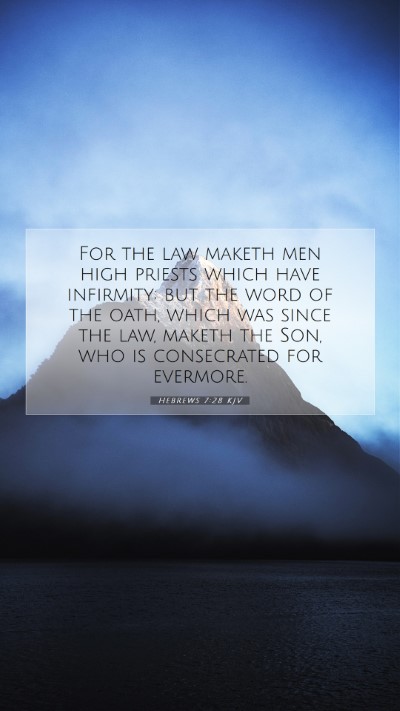Old Testament
Genesis Exodus Leviticus Numbers Deuteronomy Joshua Judges Ruth 1 Samuel 2 Samuel 1 Kings 2 Kings 1 Chronicles 2 Chronicles Ezra Nehemiah Esther Job Psalms Proverbs Ecclesiastes Song of Solomon Isaiah Jeremiah Lamentations Ezekiel Daniel Hosea Joel Amos Obadiah Jonah Micah Nahum Habakkuk Zephaniah Haggai Zechariah MalachiVerse
Hebrews 7:1 Hebrews 7:2 Hebrews 7:3 Hebrews 7:4 Hebrews 7:5 Hebrews 7:6 Hebrews 7:7 Hebrews 7:8 Hebrews 7:9 Hebrews 7:10 Hebrews 7:11 Hebrews 7:12 Hebrews 7:13 Hebrews 7:14 Hebrews 7:15 Hebrews 7:16 Hebrews 7:17 Hebrews 7:18 Hebrews 7:19 Hebrews 7:20 Hebrews 7:21 Hebrews 7:22 Hebrews 7:23 Hebrews 7:24 Hebrews 7:25 Hebrews 7:26 Hebrews 7:27 Hebrews 7:28

